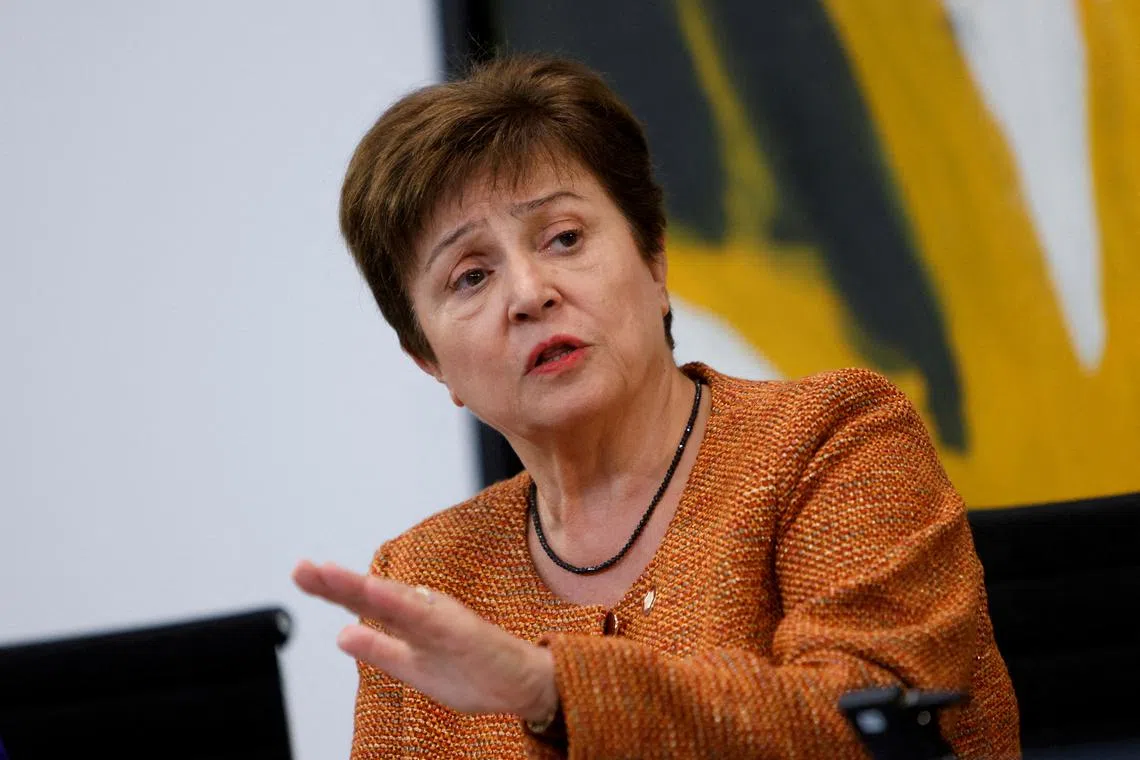IMF chief urges China to stay course on reopening economy
Sign up now: Get ST's newsletters delivered to your inbox

IMF Managing Director Kristalina Georgieva said if the US, the largest economy, goes into contraction, it will be a mild one.
PHOTO: REUTERS
Follow topic:
WASHINGTON - The head of the International Monetary Fund (IMF) urged China on Thursday to move forward with reopening its economy,
The Washington-based financial institution believes that a world recession can be avoided, even as growth slows from an estimated 3.2 per cent in 2022, Managing Director Kristalina Georgieva told reporters.
If the US, the largest economy, goes into contraction, it will be a mild one, she said.
The fund doesn’t expect a major downgrade of its October forecast for a 2.7 per cent expansion in global GDP when it updates its World Economic Outlook on Jan 31 in Singapore, Ms Georgieva said.
Global growth is likely to bottom out towards the end of the year, with the pace picking up next year, she said.
Inflation remains stubborn, and the job of central banks to tame price increases is not yet finished, she said in a wide-ranging discussion that lasted more than an hour.
“What is most important is for China to stay the course, not to back off from that reopening,” said Ms Georgieva, who visited the world’s second-largest economy last month for the first time since the start of the pandemic.
“If they stay the course, by mid-year or there around, China will turn into a positive contributor to average global growth,” she said, calling the nation’s 2022 performance “very disappointing”.
In response to a question on Friday about Ms Georgieva’s remarks, Foreign Ministry spokesman Wang Wenbin said China had received praise from the international community for “refining” its Covid-19 response measures.
“As China’s Covid situation improves, and demand surges, China’s social and economic vitality will be further unleashed. This will greatly boost world economic recovery,” Mr Wang told a regular news briefing in Beijing.
A year after the Covid-19 Omicron variant and Russia’s invasion of Ukraine slammed the brakes on the global economy, President Vladimir Putin’s war continues to be a negative factor for investor and consumer confidence, especially in Europe, Ms Georgieva said.
Potential for a spillover from the war is the risk that would have the biggest impact on economic expansion, although it’s a low-probability event, she said.
While the world’s lender of last resort sees no systemic debt crisis on the horizon, 60 per cent of low-income nations are at or near distress.
The Group of 20 (G-20) largest economies along with the IMF and World Bank will hold a global sovereign debt roundtable on the margins of a meeting of central bankers and finance ministers in India next month to bring together representatives from governments, borrowing nations and private lenders to discuss challenges.
Ms Georgieva said that one risk the world is not yet prepared for but may surface later this year is the impact of tighter financial conditions on labour markets and employment.
While governments have provided policy support to help workers deal with high energy prices, that ability is shrinking, and down the line people being out of a job amid faster inflation could lead to protests like those seen in nations from Lebanon to Chile in 2019, Ms Georgieva said. BLOOMBERG

